Neuropathy Pain Relief in Covington and Hammond
All American Medical provides natural treatments for neuropathic pain, such as regenerative medicine, therapeutic ultrasound, and electrical stimulation.
We use non-invasive natural therapies that target the physiological causes of neuropathy pain. These therapies can provably reduce swelling, ease nerve sensitivity, and increase mobility, unlike taking opioid medications long-term for nerve pain relief.

What exactly is Peripheral Neuropathy?
Peripheral neuropathy occurs when the nerves in the extremities lose their normal function due to injury or destruction. This interferes with the nerves’ normal functioning in transmitting sensory information.
When nerves are injured, they send signals that result in the sensation of pain. If damaged, they may send a pain signal even if there is no stimulus. This type of pain is typically characterized by sudden, sharp, stabbing, or burning sensations. It is also possible that nerves will cease sending pain signals at all.

“Successfully treating neuropathic pain requires an integrated approach. First, we figure out the source and address it at the source point. Then we treat it with minimally-invasive treatments ranging from laser to regenerative medicine and everything in between including physical rehabilitation, PRP and trigger point injections.”
Dr. Chip Curtis, DC, FSCT
Pain Management Expert
(985) 893-2223
What Conditions Cause Neuropathic Pain?
Damage, irritation, or inflammation of a nerve due to a disease can lead to the experience of pain. Various health conditions can be responsible for causing nerve pain, such as:
- Diabetes (Diabetic Peripheral Neuropathy)
- Stroke
- Multiple sclerosis
- Cancer & chemotherapy
- Spinal stenosis
- Herniated disk
- Carpal tunnel syndrome
- Cubital tunnel syndrome
- Postherpetic neuralgia (Shingles)
- Alcoholism
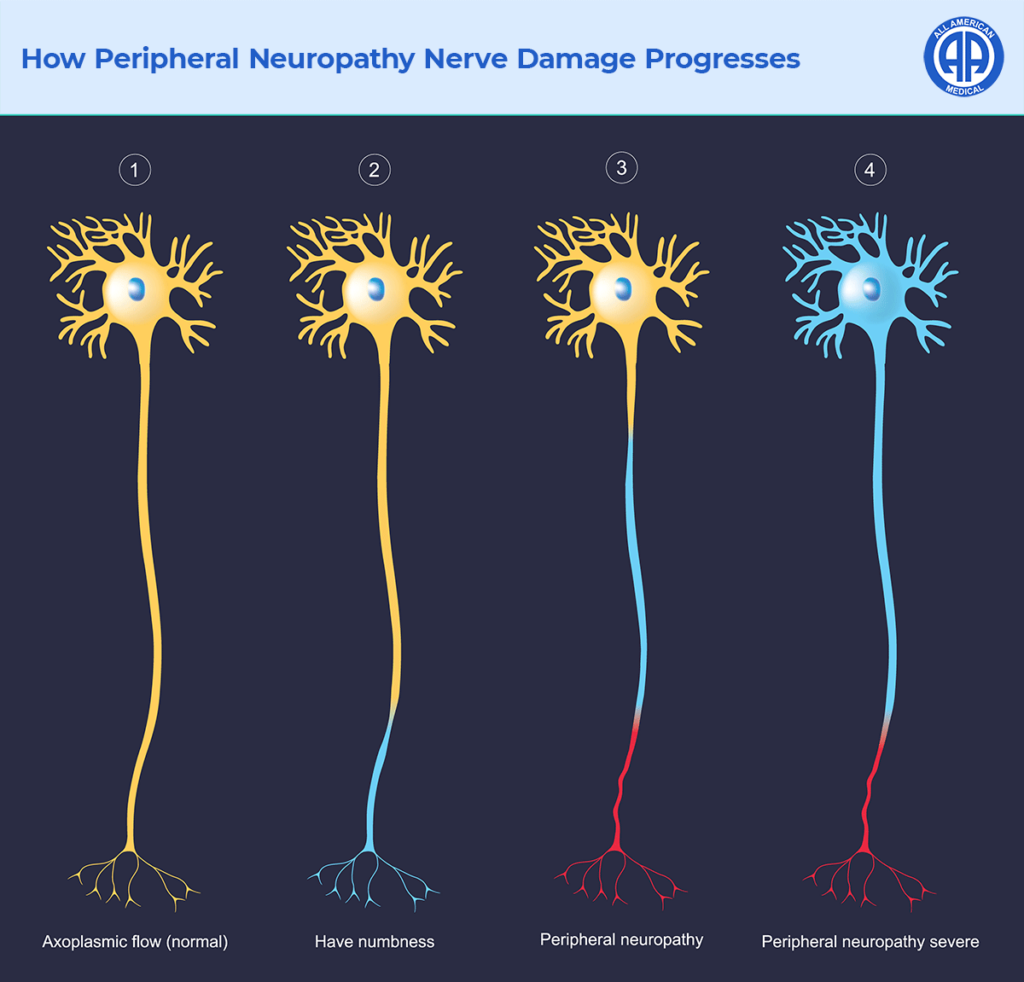
If not treated, nerve pain can develop into a chronic condition. Over time, biochemical changes can cause the nerves to become hypersensitive, magnifying the pain.
Who should consider Neuropathy Treatments?
Individuals experiencing symptoms of neuropathy, such as numbness, tingling, or pain in the hands and feet, should consider neuropathy treatments.
Symptoms of Neuropathy Pain can include:
Burning sensation
Patients often describe neuropathic pain as a burning or tingling sensation. It may feel like pins, needles, electric shocks, or a stabbing pain.
Hyperalgesia
This refers to an increased sensitivity to pain. Individuals with neuropathic pain may experience heightened pain responses to stimuli that would normally be non-painful.
Allodynia
Allodynia is the experience of pain from stimuli that are not typically painful. For example, a gentle touch or a light breeze might cause pain in affected areas.
Numbness or loss of sensation
In some cases, neuropathic pain can be accompanied by numbness or a reduction in sensation. This may result in difficulty feeling textures, temperatures, or other sensory input.
Pins and needles
Some individuals may experience sensations like “pins and needles,” often described as tingling or prickling.
Shooting or radiating Pain
Neuropathic pain can often shoot or radiate along the nerves. It may follow a specific pathway and can be triggered or worsened by movement.
Spontaneous Pain
Neuropathic pain can occur spontaneously without an apparent cause. It may come and go or be constant.
Motor symptoms
In some cases, neuropathic pain can be associated with motor symptoms, such as weakness or muscle twitching.
Natural Pain Relief Options for Neuropathy
Although medications can initially treat nerve pain, they are not always effective. They also have unwanted side effects.
The All-American Medical team, consisting of integrative doctors and pain management specialists, understands the impact of neuropathic pain on your daily life. We’re here to offer a range of services to support your well-being, including:
Platelet Rich Plasma Therapy
PRP injections use the healing abilities of your own blood to stimulate nerve growth and recovery. A small amount of blood is drawn, spun in a centrifuge to concentrate the natural healing factors, and injected back into your body.
PRP promotes nerve regeneration and functional recovery and alleviates the symptoms of peripheral neuropathy.
A 2019 randomized trial found PRP treatments to be effective in alleviating diabetic neuropathy pain, numbness, and enhancement of peripheral nerve function.
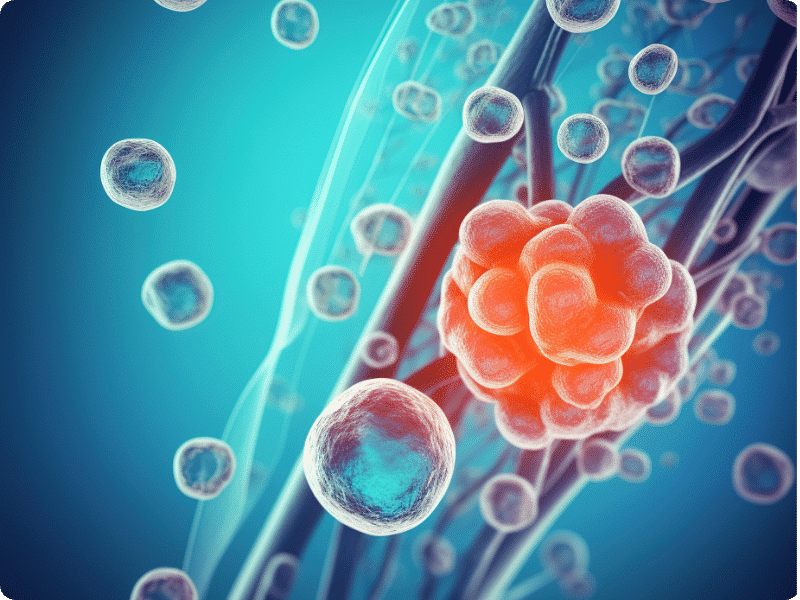
Peripheral Nerve Stimulation (PNS)
Once an injured nerve has been identified, it can be electrically blocked with a countersignal.
PNS involves placing an electrode next to the affected peripheral nerve and blocking the pain signals. For example, the sciatic or femoral nerve may be targeted for lower extremity neuropathic pain.
The FDA currently approves PNS for the treatment of acute or chronic pain in the lower back, upper or lower extremities, and head.
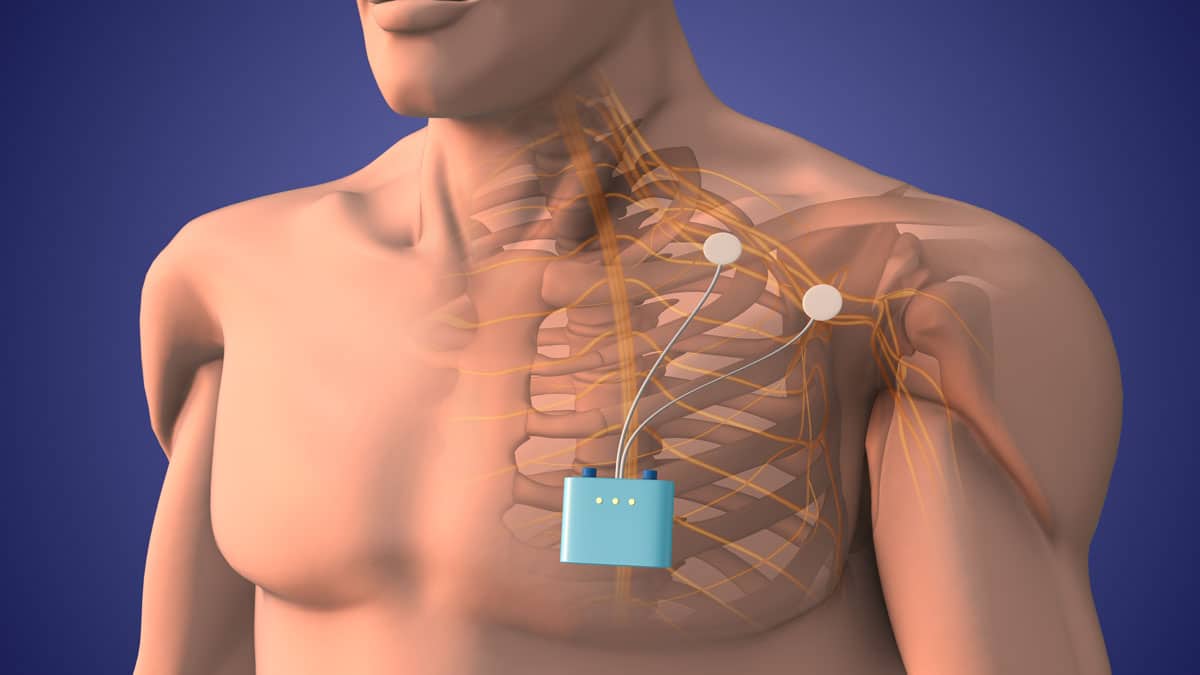
Radiofrequency Ablation (RFA)
RFA is a procedure that uses heat generated by radio waves to destroy (ablate) dysfunctional tissue, such as pain-transmitting nerves.
After a diagnosis block confirms the cause of pain, a probe is introduced to the nerve area, and FM radio waves are then passed through the probe, heating up the tip and the target nerve. This desensitizes the nerves, causing pain. The relief usually lasts 9-12 months and can be repeated.
Radiofrequency ablation is a rapidly advancing field. Many studies in the last decade have shown considerable benefits to the practice.

Neuromodulation
Neuromodulation is an FDA-approved therapy that blocks pain at the spinal cord level using a small wire similar to a pacemaker and a battery.
According to new research in the May 2022 issue of Current Pain and Headache Reports, this treatment effectively treats painful diabetic neuropathy.1
This systemic review of available research provided Level I evidence (the highest possible) that neuromodulation is effective, even when other treatment methods have failed.
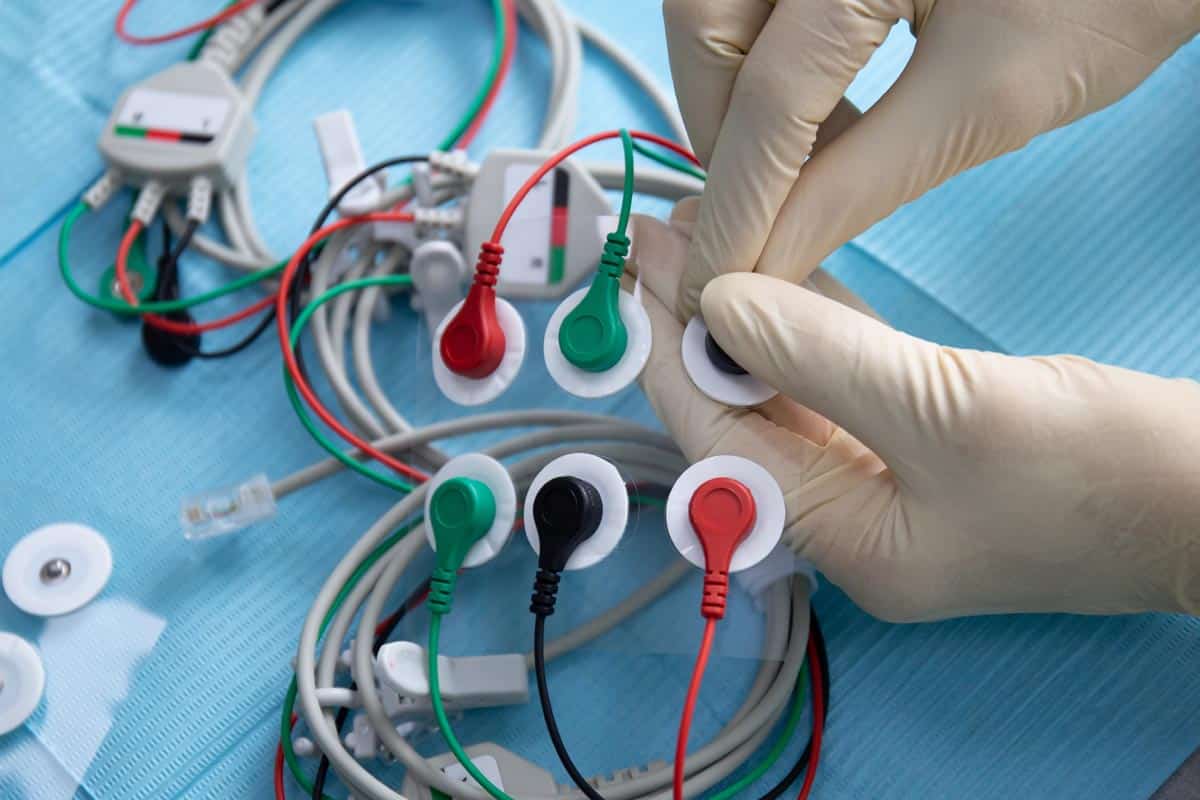
If you are interested in All American Medical’s natural, drug-free approach to relieving neuropathic pain, schedule an appointment with us or call us with any questions.
How We Approach Peripheral Neuropathy
Our neuropathic pain treatment programs are designed to provide relief by targeting the root causes of pain or by effectively managing the associated symptoms.
- Diagnose the source: Unlike acute pain, which is often a direct response to injury or inflammation, neuropathic pain stems from malfunctions or damage in the nervous system.
These can sometimes be difficult to pinpoint, but All American Medical has the experience to find these sources of pain. - Create a treatment plan: Addressing neuropathic pain without drugs or surgery requires a comprehensive approach that considers both the underlying factors and the specific symptoms experienced by individuals.
We will make a plan that is specific to you and your conditions. - Adjust the treatment plan as needed: It’s crucial to recognize that managing neuropathic pain is complex, and its effectiveness may vary significantly from person to person.
How long does the Pain Relief last?
The duration of pain relief after each treatment can vary widely depending on the specific treatment modality, the underlying cause of neuropathy pain, and individual patient factors.
It’s crucial to note that pain from neuropathy is often a chronic condition, and complete resolution of pain may not always be possible. The goal of treatment is often to manage and reduce pain, improve function, and enhance the overall quality of life.
Complementary and Alternative Therapies for Peripheral Neuropathy
Massage, physical rehabilitation and other alternative therapies complement traditional treatments. While their effectiveness can vary, some individuals find relief through these approaches.
Lifestyle modifications: Lifestyle changes, such as maintaining a healthy diet, exercising regularly, and managing stress, can contribute to overall well-being and help alleviate neuropathic pain.
Physical rehabilitation: Physical rehabilitation can help improve strength, flexibility, and overall function. Specific exercises may be designed to alleviate nerve compression or improve posture, reducing pain symptoms.
Heat and cold therapy: Applying heat or cold to the affected area may help alleviate neuropathic pain. Warm compresses or cold packs can be used depending on individual preferences.
Are Neuropathic Pain Treatments right for you?
If you think you are experiencing neuropathic pain, our pain management specialists will help create a treatment program just for you.
If you have any questions about peripheral neuropathy therapy or would like to schedule an appointment, please contact All American Medical at our Covington or Hammond locations.
Covington Neuropathy Therapy Team
Dr. Curtis and Dr. Strahl lead the experienced team treating peripheral neuropathy at our Covington clinic.
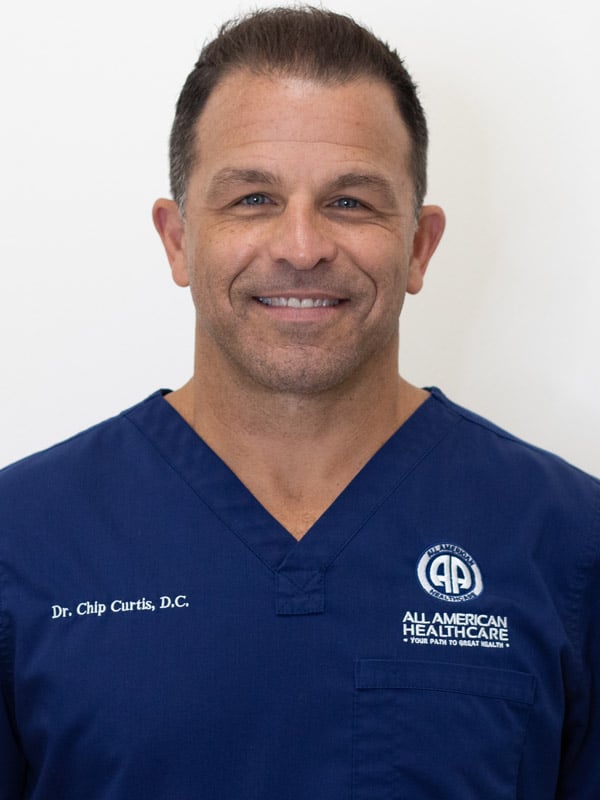
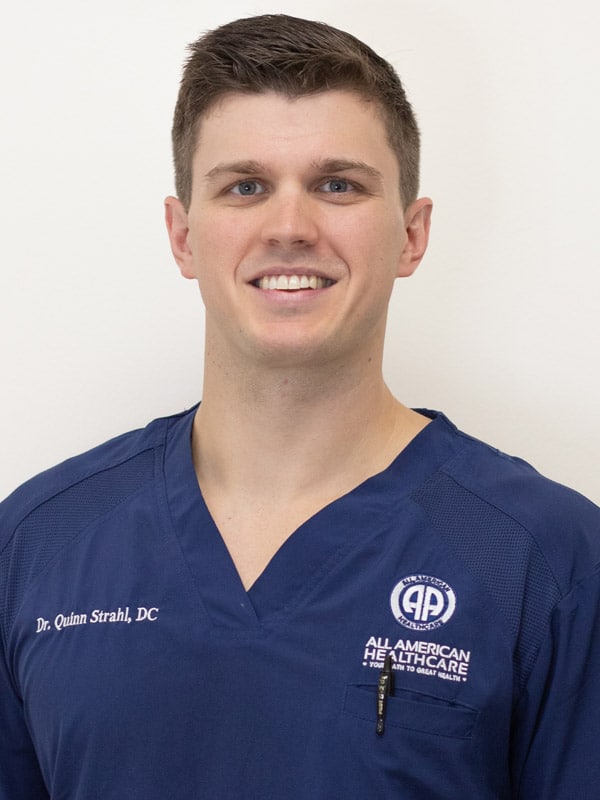

Hammond Neuropathy Therapy Team
Dr. Siecsnyadre and Dr. Dericks lead our Hammond clinic’s experienced team treating peripheral neuropathy.



Clinical research studies supporting natural Neuropathy treatments
(1) D’Souza, R.S., Langford, B., Dombovy-Johnson, M. et al. Neuromodulation Interventions for the Treatment of Painful Diabetic Neuropathy: a Systematic Review. Curr Pain Headache Rep 26, 365–377 (2022). https://doi.org/10.1007/s11916-022-01035-9
